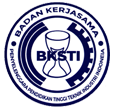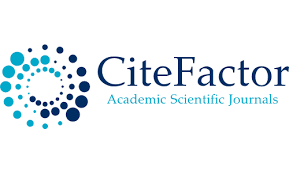- Focus and Scope
- Section Policies
- Peer Review Process
- Publication Frequency
- Open Access Policy
- Archiving
- Publication Ethics
Focus and Scope
The journal aims to advance the theoretical and applied knowledge of this rapidly evolving field, with a special focus on industrial engineering and management, organisation of production processes, management of production knowledge, computer integrated management of production flow, enterprise effectiveness, maintainability and sustainable manufacturing, productivity and organisation, forecasting, modelling and simulation, decision making systems, project management, innovation management and technology transfer, quality engineering and safety at work, supply chain optimization. Indonesian Journal of Industrial Engineering & Management is published under the auspices of Universitas Mercu Buana.
The main purpose of Indonesian Journal of Industrial Engineering & Management is to publish the results of cutting-edge research advancing the concepts, theories and implementation of novel solutions in modern manufacturing and services. Papers presenting original research results related to industrial engineering and management education are also welcomed.
Section Policies
Front Matter
Articles
Peer Review Process
All submitted manuscripts will be initially reviewed by editors and are then evaluated by minimum two reviewers through the double-blind review process. This is to ensure the quality of the published manuscripts in the journal. The Editor Board shall inform the results of the review as soon as possible, hopefully in 2 months. Please notice that because of the great number of submissions tha IJIEM has received during the last few months the duration of the review process can be up to 3 months. Plagiarism scanning will be conducted with the help of Google Scholar and an Anti-Plagiarism Software.
IJIEM - Indonesian Journal of Industrial Engineering and Management policies related to reviews is as follows:
1. Each incoming script will be checked using the web check plagiarism, Turnitin.
2. Each entry will go through a review process.
3. The review process uses a double-blind review.
4. In the process of reviewing, the reviewer gives consideration related to scientific impact, novelty (research contribution), method, conclusions, and references used.
5. Each submitted text is not sent and or being reviewed in another journal.
The decision of the reviewer will be considered by the editor to:
1. Accept Submission
2. Revision Required
3. Resubmit for review
4. Resubmit elsewhere
5. Decline Submission
Manuscripts are rejected for publication because of the following reasons:
1. Articles do not follow the rules of writing scientific papers or guidelines for journal writing.
2. Fatal error in the methodology.
3. The author rejects suggestions for improvements given by reviewers without acceptable reasons.
4. The manuscript indicates plagiarism with more than 20% similarity.
Publication Frequency
The IJIEM is issued three times a year (February, June, and October)
Open Access Policy
This journal provides immediate open access to its content on the principle that making research freely available to the public supports a greater global exchange of knowledge.
Archiving
This journal utilizes the LOCKSS system to create a distributed archiving system among participating libraries and permits those libraries to create permanent archives of the journal for purposes of preservation and restoration. More...
Publication Ethics
This statement clarifies ethical behavior of all parties involved in the act of publishing an article in our journals, including the authors, the editors, the peer-reviewers and the publisher (Prodi Magister Teknik Industri, Universitas Mercu Buana). This statement is based on COPE’s Best Practice Guidelines for Journal Editors.
Ethical Guideline for Journal Publication
The publication of an article in a peer-reviewed IJIEM - Indonesian Journal of Industrial Engineering and Management is an essential building block in the development of a coherent and respected network of knowledge. It is a direct reflection of the quality of the work of the authors and the institutions that support them. Peer-reviewed articles support and embody the scientific method. It is therefore important to agree upon standards of expected ethical behavior for all parties involved in the act of publishing: the authors, the journal editors, the peer reviewers, the publisher and the society.
Prodi Magister Teknik Industri, Universitas Mercu Buana as publisher of this Journal takes its duties of guardianship over all stages of publishing extremely seriously and we recognize our ethical and other responsibilities. We are committed to ensuring that advertising, reprint or other commercial revenue has no impact or influence on editorial decisions. In addition, the Universitas Mercu Buana and Editorial Board will assist in communications with other journals and/or publishers where this is useful and necessary.
Publication decisions
The editors of the IJIEM - Indonesian Journal of Industrial Engineering and Management are responsible for deciding which of the articles submitted to the journal should be published. The validation of the work in question and its importance to researchers and readers must always drive such decisions. The editors may be guided by the policies of the journal's editorial board and constrained by such legal requirements as shall then be in force regarding libel, copyright infringement and plagiarism. The editors may confer with other editors or reviewers in making this decision.
Fair play
An editor at any time evaluate manuscripts for their intellectual content without regard to race, gender, sexual orientation, religious belief, ethnic origin, citizenship, or political philosophy of the authors.
Confidentiality
The editor and any editorial staff must not disclose any information about a submitted manuscript to anyone other than the corresponding author, reviewers, potential reviewers, other editorial advisers, and the publisher, as appropriate.
Disclosure and conflicts of interest
Unpublished materials disclosed in a submitted manuscript must not be used in an editor's own research without the express written consent of the author.
Duties of Reviewers
Contribution to Editorial Decisions
Peer review assists the editor in making editorial decisions and through the editorial communications with the author may also assist the author in improving the paper.
Promptness
Any selected referee who feels unqualified to review the research reported in a manuscript or knows that its prompt review will be impossible should notify the editor and excuse himself from the review process.
Confidentiality
Any manuscripts received for review must be treated as confidential documents. They must not be shown to or discussed with others except as authorized by the editor.
Standards of Objectivity
Reviews should be conducted objectively. Personal criticism of the author is inappropriate. Referees should express their views clearly with supporting arguments.
Acknowledgement of Sources
Reviewers should identify relevant published work that has not been cited by the authors. Any statement that an observation, derivation, or argument had been previously reported should be accompanied by the relevant citation. A reviewer should also call to the editor's attention any substantial similarity or overlap between the manuscript under consideration and any other published paper of which they have personal knowledge.
Disclosure and Conflict of Interest
Privileged information or ideas obtained through peer review must be kept confidential and not used for personal advantage. Reviewers should not consider manuscripts in which they have conflicts of interest resulting from competitive, collaborative, or other relationships or connections with any of the authors, companies, or institutions connected to the papers.
Duties of Authors
Reporting standards
Authors of reports of original research should present an accurate account of the work performed as well as an objective discussion of its significance. Underlying data should be represented accurately in the paper. A paper should contain sufficient detail and references to permit others to replicate the work. Fraudulent or knowingly inaccurate statements constitute unethical behavior and are unacceptable.
Data Access and Retention
Authors are asked to provide the raw data in connection with a paper for editorial review, and should be prepared to provide public access to such data (consistent with the ALPSP-STM Statement on Data and Databases), if practicable, and should in any event be prepared to retain such data for a reasonable time after publication.
Originality and Plagiarism
The authors should ensure that they have written entirely original works, and if the authors have used the work and/or words of others that this has been appropriately cited or quoted.
Multiple, Redundant or Concurrent Publication
An author should not in general publish manuscripts describing essentially the same research in more than one journal or primary publication. Submitting the same manuscript to more than one journal concurrently constitutes unethical publishing behavior and is unacceptable.
Acknowledgement of Sources
Proper acknowledgment of the work of others must always be given. Authors should cite publications that have been influential in determining the nature of the reported work.
Authorship of the Paper
Authorship should be limited to those who have made a significant contribution to the conception, design, execution, or interpretation of the reported study. All those who have made significant contributions should be listed as co-authors. Where there are others who have participated in certain substantive aspects of the research project, they should be acknowledged or listed as contributors. The corresponding author should ensure that all appropriate co-authors and no inappropriate co-authors are included on the paper, and that all co-authors have seen and approved the final version of the paper and have agreed to its submission for publication.
Hazards and Human or Animal Subjects
If the work involves chemicals, procedures or equipment that have any unusual hazards inherent in their use, the author must clearly identify these in the manuscript.
Disclosure and Conflicts of Interest
All authors should disclose in their manuscript any financial or other substantive conflict of interest that might be construed to influence the results or interpretation of their manuscript. All sources of financial support for the project should be disclosed.
Fundamental errors in published works
When an author discovers a significant error or inaccuracy in his/her own published work, it is the author’s obligation to promptly notify the journal editor or publisher and cooperate with the editor to retract or correct the paper.





1.png)
.png)
.png)
.png)








